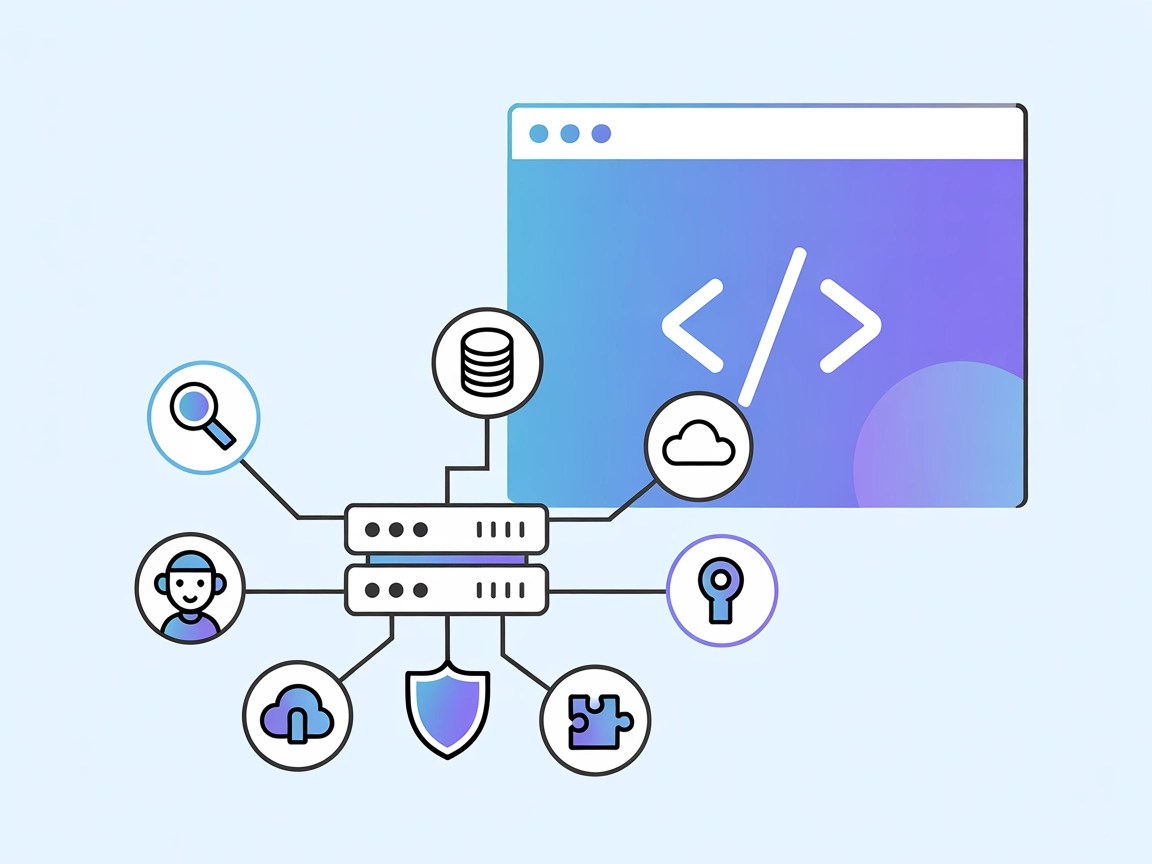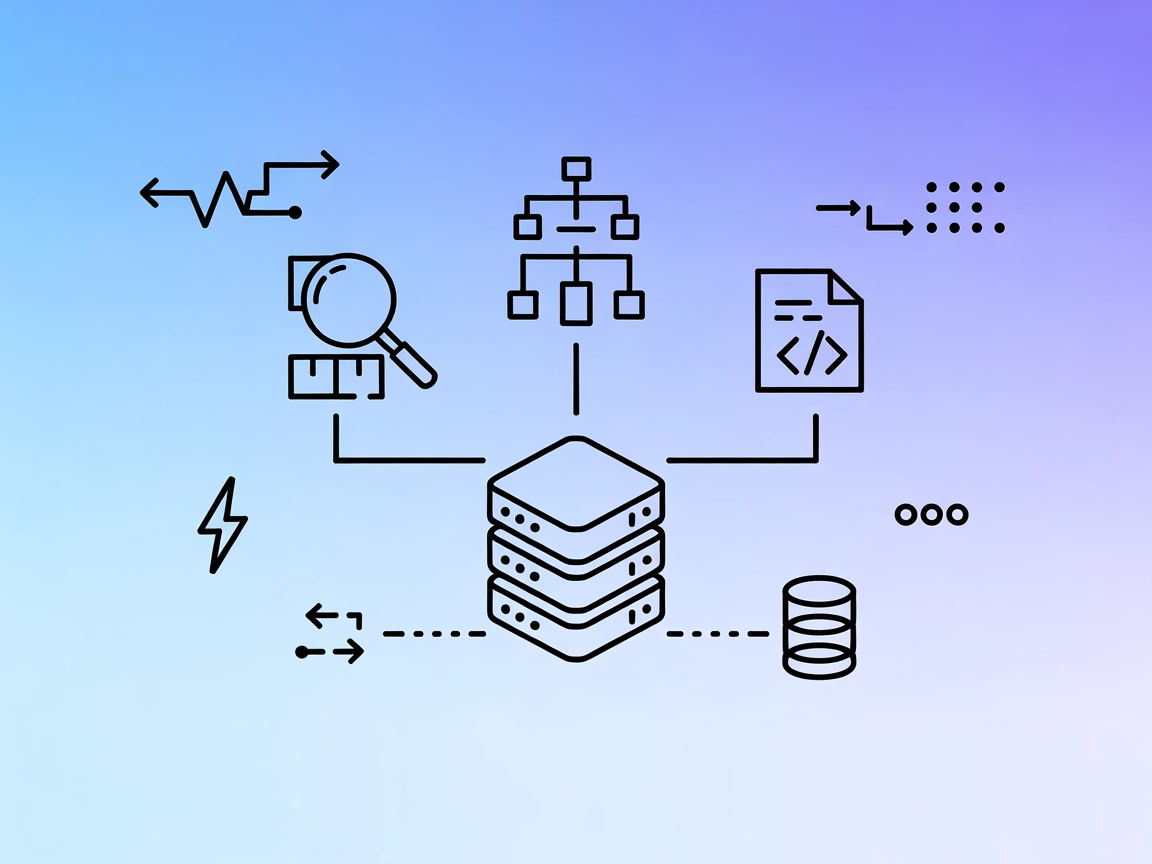
MCP GraphQL Server
MCP GraphQL is a Model Context Protocol (MCP) server that standardizes access to GraphQL APIs, dynamically exposing each query as a tool for AI assistants and d...

Explore and document GraphQL APIs programmatically with the GraphQL Schema MCP Server for FlowHunt. Instantly access schema fields, types, and definitions for intelligent automation and seamless workflow integration.
FlowHunt provides an additional security layer between your internal systems and AI tools, giving you granular control over which tools are accessible from your MCP servers. MCP servers hosted in our infrastructure can be seamlessly integrated with FlowHunt's chatbot as well as popular AI platforms like ChatGPT, Claude, and various AI editors.
The GraphQL Schema Model Context Protocol (MCP) Server is a specialized tool that enables AI assistants, such as Claude, to interact with and understand GraphQL schemas. By exposing schema details through a suite of dedicated tools, it allows large language models to explore query, mutation, and subscription fields, look up type definitions, and perform pattern-matching searches across the schema. This enhances development workflows by enabling LLMs to answer detailed questions about APIs, assist in API integration, and automate documentation or code generation tasks related to GraphQL-based systems. The server can load any GraphQL schema file specified at launch, providing a flexible foundation for schema analysis, code exploration, and developer assistance.
No explicit prompt templates are mentioned in the repository documentation or code.
No explicit resources (as per MCP standard) are listed in the documentation or code.
No explicit Windsurf setup instructions are provided in the repository.
claude_desktop_config.json:~/Library/Application Support/Claude/claude_desktop_config.json$env:AppData\Claude\claude_desktop_config.jsonmcpServers object.{
"mcpServers": {
"GraphQL Schema": {
"command": "npx",
"args": ["-y", "mcp-graphql-schema", "/ABSOLUTE/PATH/TO/schema.graphqls"]
}
}
}
No explicit Cursor setup instructions are provided in the repository.
No explicit Cline setup instructions are provided in the repository.
No information about securing API keys or environment variable configuration is mentioned in the repository.
Using MCP in FlowHunt
To integrate MCP servers into your FlowHunt workflow, start by adding the MCP component to your flow and connecting it to your AI agent:

Click on the MCP component to open the configuration panel. In the system MCP configuration section, insert your MCP server details using this JSON format:
{
"MCP-name": {
"transport": "streamable_http",
"url": "https://yourmcpserver.example/pathtothemcp/url"
}
}
Once configured, the AI agent is now able to use this MCP as a tool with access to all its functions and capabilities. Remember to change “MCP-name” to whatever the actual name of your MCP server is (e.g., “github-mcp”, “weather-api”, etc.) and replace the URL with your own MCP server URL.
| Section | Availability | Details/Notes |
|---|---|---|
| Overview | ✅ | Included in README.md |
| List of Prompts | ⛔ | No prompt templates found |
| List of Resources | ⛔ | No explicit resource definitions found |
| List of Tools | ✅ | 10 tools described in README.md |
| Securing API Keys | ⛔ | No details on API key management |
| Sampling Support (less important in evaluation) | ⛔ | No mention of sampling support |
Based on the details above, this MCP server is solid for GraphQL schema exploration and tooling but lacks explicit prompts, resources, and key management documentation. It is very focused on its domain and well-documented for use with Claude.
This MCP server is highly specialized and effective for GraphQL schema analysis, with robust tool support and clear documentation for Claude integration. However, the absence of prompt templates, explicit resource definitions, and environment variable/key security handling limits its broader applicability and ease of secure deployment. Roots and sampling support are not mentioned, which may affect advanced integration scenarios. Overall, this is a strong, reliable MCP for its target use case but could be improved for generality and security.
| Has a LICENSE | ✅ (MIT) |
|---|---|
| Has at least one tool | ✅ |
| Number of Forks | 6 |
| Number of Stars | 30 |
The GraphQL Schema MCP Server is a tool that allows AI agents and developers to interact with and analyze GraphQL schemas programmatically. It exposes dedicated tools for querying schema fields, types, and searching schema content, making it easier to explore, document, and integrate GraphQL APIs.
The server provides tools for listing and inspecting query, mutation, and subscription fields, retrieving GraphQL types and their fields, and searching the schema using name patterns. This facilitates rapid API discovery and documentation.
Install Node.js and npx, then update your Claude configuration to include the GraphQL Schema MCP server pointing to your schema file. Save and restart Claude Desktop to enable the integration.
No explicit support or documentation for key management or environment variable configuration is provided for this MCP server.
Common use cases include GraphQL API exploration, schema documentation assistance, codebase integration, API integration planning, and schema search or analysis for audits and migrations.
Supercharge your API exploration and documentation with FlowHunt's GraphQL Schema MCP integration. Enable AI-driven insights and automation for your GraphQL systems.

MCP GraphQL is a Model Context Protocol (MCP) server that standardizes access to GraphQL APIs, dynamically exposing each query as a tool for AI assistants and d...

The Apollo MCP Server bridges AI assistants with GraphQL APIs, exposing GraphQL operations as MCP tools. It enhances developer workflows by enabling AI-driven q...

TheGraph MCP Server connects AI agents with indexed blockchain data from The Graph protocol, enabling seamless access, querying, and analysis of on-chain inform...
Cookie Consent
We use cookies to enhance your browsing experience and analyze our traffic. See our privacy policy.